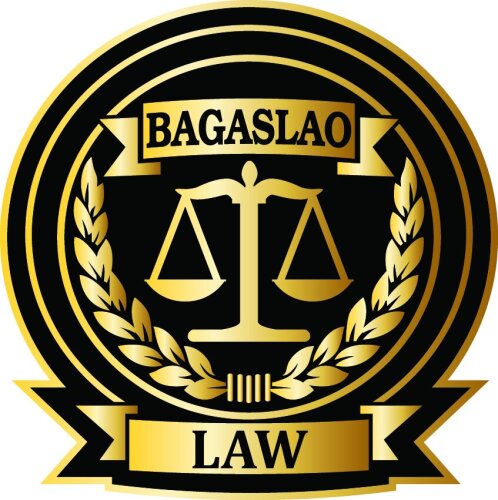Best Collaborative Law Lawyers in Whitehorse
Share your needs with us, get contacted by law firms.
Free. Takes 2 min.
Free Guide to Hiring a Family Lawyer
List of the best lawyers in Whitehorse, Canada
About Collaborative Law in Whitehorse, Canada
Collaborative law is a legal process that provides an alternative to traditional litigation, particularly in resolving family disputes. In Whitehorse, Canada, collaborative law focuses on helping parties reach amicable agreements through structured negotiation and communication, with the assistance of trained professionals. This approach is voluntary, and both parties commit to resolving their issues without going to court. Collaborative law is gaining popularity in Whitehorse due to its emphasis on preserving relationships, maintaining confidentiality, and fostering creative solutions tailored to the unique needs of the parties involved.
Why You May Need a Lawyer
Collaborative law might be beneficial in various situations, including:
- Divorce or separation proceedings where both parties wish to minimize conflict.
- Child custody and visitation arrangements that require cooperative communication.
- Disputes over property division or support agreements that could be resolved amicably.
- Situations where parties wish to retain control over the process and outcomes, rather than leaving it to a judge.
- Any family dispute where the parties value maintaining future relationships and privacy.
Local Laws Overview
Whitehorse, as part of the Yukon Territory, is governed by the Yukon Family Law Act and other relevant statutes. Key aspects of these laws include:
- The emphasis on the best interests of the children in custody and visitation disputes.
- Legal provisions for equitable distribution of marital assets and debts.
- A framework for determining spousal and child support in a fair manner.
- Encouragement of alternative dispute resolution mechanisms, such as collaborative law, to settle matters outside of court.
Frequently Asked Questions
What is the main goal of collaborative law?
The main goal of collaborative law is to resolve disputes amicably without going to court, focusing on open communication and reaching mutually beneficial agreements.
How is collaborative law different from mediation?
While both are forms of alternative dispute resolution, collaborative law involves each party having their own lawyer to provide legal advice, whereas mediation often involves a neutral third party helping negotiate between the parties.
What happens if the collaborative process fails?
If the collaborative process fails, both parties must hire new legal representatives to take the matter to court, as the collaborative attorneys are disqualified from representing their clients in litigation.
Can any lawyer practice collaborative law?
No, lawyers need specific training in the collaborative law process to practice effectively and ethically.
Is collaborative law only applicable to family law matters?
While most common in family law, collaborative law can be used in various civil disputes, provided both parties are committed to the process.
What are the benefits of choosing collaborative law?
Collaborative law can save time, reduce costs, and preserve relationships compared to traditional litigation. It also offers more control over the process and outcomes.
How long does a typical collaborative law process take?
The duration varies depending on the complexity of the issues and the willingness of the parties to cooperate, but it is generally faster than traditional court proceedings.
What costs are involved in the collaborative law process?
Costs include the fees for the collaborative lawyers and any other professionals involved, such as financial advisors or child specialists. These costs can often be less than traditional litigation expenses.
Are our discussions in the collaborative process confidential?
Yes, discussions and negotiations within the collaborative process are confidential and cannot be used in court if the process fails.
What if one party is not fully committed to the process?
The success of collaborative law depends on both parties being fully committed. Lack of commitment or undisclosed intentions can lead to the breakdown of the process.
Additional Resources
For more information and support on collaborative law in Whitehorse, consider reaching out to:
- The Law Society of Yukon, which can provide listings of trained collaborative lawyers.
- The Collaborative Family Law Association of Yukon, which offers resources and support for families considering this approach.
- Local community legal aid services, which may offer guidance and low-cost services for those in need.
Next Steps
If you believe collaborative law is the right approach for your situation, consider reaching out to a qualified collaborative lawyer in Whitehorse. Ensure they have specific training and experience in collaborative practice. You can also schedule an initial consultation with a few lawyers to find the best fit for your needs. Seeking out workshops or seminars on collaborative law can also be beneficial for understanding the process better before you proceed.
Lawzana helps you find the best lawyers and law firms in Whitehorse through a curated and pre-screened list of qualified legal professionals. Our platform offers rankings and detailed profiles of attorneys and law firms, allowing you to compare based on practice areas, including Collaborative Law, experience, and client feedback.
Each profile includes a description of the firm's areas of practice, client reviews, team members and partners, year of establishment, spoken languages, office locations, contact information, social media presence, and any published articles or resources. Most firms on our platform speak English and are experienced in both local and international legal matters.
Get a quote from top-rated law firms in Whitehorse, Canada — quickly, securely, and without unnecessary hassle.
Disclaimer:
The information provided on this page is for general informational purposes only and does not constitute legal advice. While we strive to ensure the accuracy and relevance of the content, legal information may change over time, and interpretations of the law can vary. You should always consult with a qualified legal professional for advice specific to your situation.
We disclaim all liability for actions taken or not taken based on the content of this page. If you believe any information is incorrect or outdated, please contact us, and we will review and update it where appropriate.









